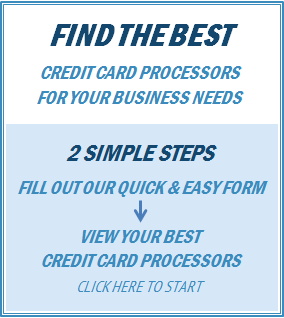Virtual Credit Card Processing
The idea of credit cards, terminals and signatures meant a physical device that customers used to scan their card. They still find use in brick and mortar retail establishments and have a security advantage – provided clerks actually check ID and the signature. However, they have one clear disadvantage – customers have to be physically present where credit card terminals are located. The virtual credit card processing system eliminates this restriction.
Ecommerce Merchant Account
The virtual credit card terminal starts with an internet merchant account and a website. The website can be public or a node in a secure network. The difference comes in how the virtual terminal will be used. If you intend to privately run credit cards storefront. Merchant account service is the same, but differs from offline because your interactions and paperwork will all be electronic (instead of over the phone and by mail).
You or your employees can access private network virtual terminals to take credit cards by entering the appropriate information in a variety of ways. Data can be keyed in on a computer, scanned through a web enabled cell phone or with a custom device that fits your business needs. It allows you to process credit cards remotely and take payments wherever you transact sales.
If you run a website and online storefront, payment solutions that allow customers to process credit cards are also virtual. Processing credit cards in this situation also has no signature or physical credit card necessary. Whether your employees are entering the info or customers do it themselves on a website, the payment gateways are similar – each charges you for the additional risk of “card not present” but gives you the opportunity to dramatically expand your business.
Internet Payments
Your merchant account provider will often have a “native” system they use and prefer for online payments. The best credit card processing for your business may or may not match up with what’s offered. The main advantage of using software from your gateway provider is high confidence that it will work reliably. It’s in their interest to maintain a solid platform to avoid errors. The downside is that merchant account services is a different business than storefronts – what is offered may not fit the style or functionality of your website.
Some online entrepreneurs will actually design their websites around the restrictions required for merchant credit card processing. Others will pay for expert advice and custom programming. If you arrange for a merchant account online, you may have shopping cart software included as part of a package. If possible, it helps to try it out on a working website to get a feel for the customer experience. It’s also wise to see what other businesspeople think of any system you are considering.
How Does Ecommerce Differ?
Once you have a working ecommerce payment system, merchant credit card processing is very similar to offline. The charges however are slightly higher on a per transaction basis. This is because the risk of fraud is higher in the virtual environment. We’ve all heard stories about data theft and misuse of credit cards online – this continues to be a real problem.
Restrictions in service can happen when:
- You suddenly generate an unusually large volume of sales – may happen with special offers that “go viral.”
- Sales from a suspect country or area of the world – common for ID theft and fraud from Eastern Europe or Sub-Saharan Africa.
- Multiple smaller (but significant) transactions from one or a few credit cards. This type of “repeat behavior” can happen when someone is misusing a valid card and trying to slip past single transaction limits.
- Mismatches between cardholder address and ship-to address, especially when to a different country.
These types of flagged behavior don’t happen offline. They can only occur in automated systems where an employee isn’t acting as a buffer between customers and credit card transactions. Some of these can be caught by software before merchant processing proceeds to the step where charges are generated. Doing this kind of “pre-checking” has its own costs though.
Pre-checking means you have to maintain a database of transactions and customer information to catch suspicious behavior yourself. Sites that do this have to meet security standards set by the credit card industry because the database is itself a target for theft.
Security is an ongoing concern. Merchant accounts are valuable and worth protecting – how you handle your account will reflect on your business credit and ability to negotiate lower rates. A good track record helps you while poor performance hurts.
There’s no reason not to process credit card sales virtually, as long as you pay careful attention to usability and security. The Internet is full of successful businesses who handle huge volumes of credit card sales every day. The trick, as always, is matching up the services offered and your particular business model. A good service provider will get as much information as possible about you, your business, your customers and your anticipated sales – before they make a recommendation.


